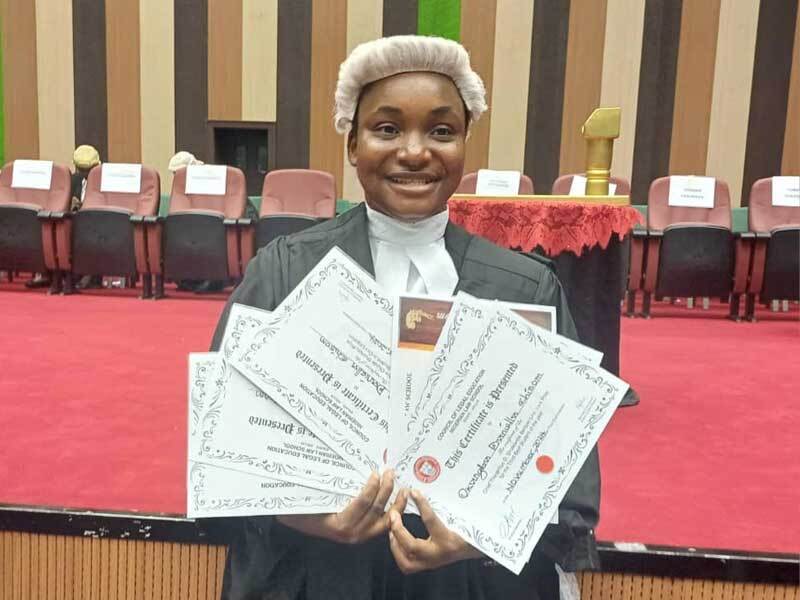Decolonizing African Education: Prioritizing Indigenous Know
A professor of Philosophy of Science, Logic and Critical Rationalism at Lagos State University, Oseni Afisi, has bemoaned the growing disconnect between African students and their cultural heritage, blaming it on the dominance of Western theories and philosophies in school curricula across the continent.
Afisi noted that African scholars are often pressured to adopt foreign intellectual frameworks, leading to a crisis of identity and conflicting value systems.
He stated this while delivering his inaugural lecture titled “The Oracle and the Open Society: Rethinking the Evolution of Authority and the Pursuit of Epistemic Justice in African Philosophical Thought,” at the Lagos State University, on Tuesday.
According to him, Africans are caught in a dilemma between embracing ancestral wisdom and conforming to Western rationality, between traditional spiritual beliefs and imported religious doctrines.
“For centuries, African knowledge systems, whether in medicine, governance, philosophy, or environmental management, were systematically devalued and dismissed as ‘superstition’ by colonial powers.
“European colonisers imposed their educational models, replacing indigenous wisdom with Western science, philosophy, and religion. Indigenous systems such as Ifá, which are coherent, interpretive, and ethically grounded, were rebranded as irrational.
“Today, African schools and universities continue to embrace Western philosophers, scientists, and theorists, leaving students disconnected from their cultural heritage. This intellectual dependency perpetuates a mindset of inferiority, where African scholars are pressured to adopt foreign theories rather than develop their own”, Afisi said.
Afisi warned that this dependency entrenches a sense of inferiority among African scholars, who are often compelled to rely on foreign theories rather than develop original frameworks rooted in local realities.
To address the problem, he called on educators and policymakers to reform education curricula at all levels to integrate African perspectives in science, logic, and ethics.
He advocated the development of textbooks and learning materials that “emphasise dialogical reasoning, moral accountability, and critical thinking rooted in local languages, oral traditions, and community experiences.”
“Curricula at all levels of education must be reformed to include African perspectives in science, logic, and ethics. Beyond token inclusion, educational content should reflect the depth, complexity, and contemporary relevance of African philosophies,” Afisi added.
Afisi also urged the government to formally recognise and regulate the interface between biomedicine and traditional healing systems.
He emphasised the need for policies that mandate the integration of African philosophical perspectives into both the humanities and science education.
“Public intellectuals and philosophers should be appointed to policy advisory roles to ensure reflective and culturally-sensitive governance. I advocate for the inclusion of Philosophy as part of courses taught in our JUPEB or A/Levels system in Nigeria”, Afisi continued.
The don also warned against ongoing neocolonial influences, which he said have deepened Africa’s identity crisis and contributed to intellectual stagnation.
He said, “One of the most significant problems facing Africa is epistemic hegemony and intellectual marginalisation. Closely related to this problem is the crisis of identity and epistemic fragmentation.
“African societies find themselves caught between conflicting value systems, traditional ethics rooted in communal values, religious doctrines introduced by missionaries, and secular individualism promoted by Western modernity.”
Afisi further argued that Africa’s underdevelopment is compounded by political dependency and external control, noting that many African states remain economically and intellectually reliant on former colonial powers and global financial institutions, such as the International Monetary Fund and the World Bank.
“African economies are structured around the export of raw materials and the import of finished goods, leaving them vulnerable to global market fluctuations. Politically, African leaders often adopt policies dictated by foreign donors rather than pursuing independent, context-sensitive development strategies.
“Intellectually, African universities and research institutes continue to rely on foreign theories, often dismissing indigenous knowledge as primitive.
“This dependency is reinforced by a crisis of leadership and ethical erosion. In many African societies, leadership is marked by corruption, nepotism, and the pursuit of personal gain. Traditional values of integrity, accountability, and communal responsibility have been replaced by a culture of impunity,” Afisi concluded.
You may also like...
Diddy's Legal Troubles & Racketeering Trial

Music mogul Sean 'Diddy' Combs was acquitted of sex trafficking and racketeering charges but convicted on transportation...
Thomas Partey Faces Rape & Sexual Assault Charges

Former Arsenal midfielder Thomas Partey has been formally charged with multiple counts of rape and sexual assault by UK ...
Nigeria Universities Changes Admission Policies

JAMB has clarified its admission policies, rectifying a student's status, reiterating the necessity of its Central Admis...
Ghana's Economic Reforms & Gold Sector Initiatives

Ghana is undertaking a comprehensive economic overhaul with President John Dramani Mahama's 24-Hour Economy and Accelera...
WAFCON 2024 African Women's Football Tournament

The 2024 Women's Africa Cup of Nations opened with thrilling matches, seeing Nigeria's Super Falcons secure a dominant 3...
Emergence & Dynamics of Nigeria's ADC Coalition

A new opposition coalition, led by the African Democratic Congress (ADC), is emerging to challenge President Bola Ahmed ...
Demise of Olubadan of Ibadanland
Oba Owolabi Olakulehin, the 43rd Olubadan of Ibadanland, has died at 90, concluding a life of distinguished service in t...
Death of Nigerian Goalkeeping Legend Peter Rufai

Nigerian football mourns the death of legendary Super Eagles goalkeeper Peter Rufai, who passed away at 61. Known as 'Do...




